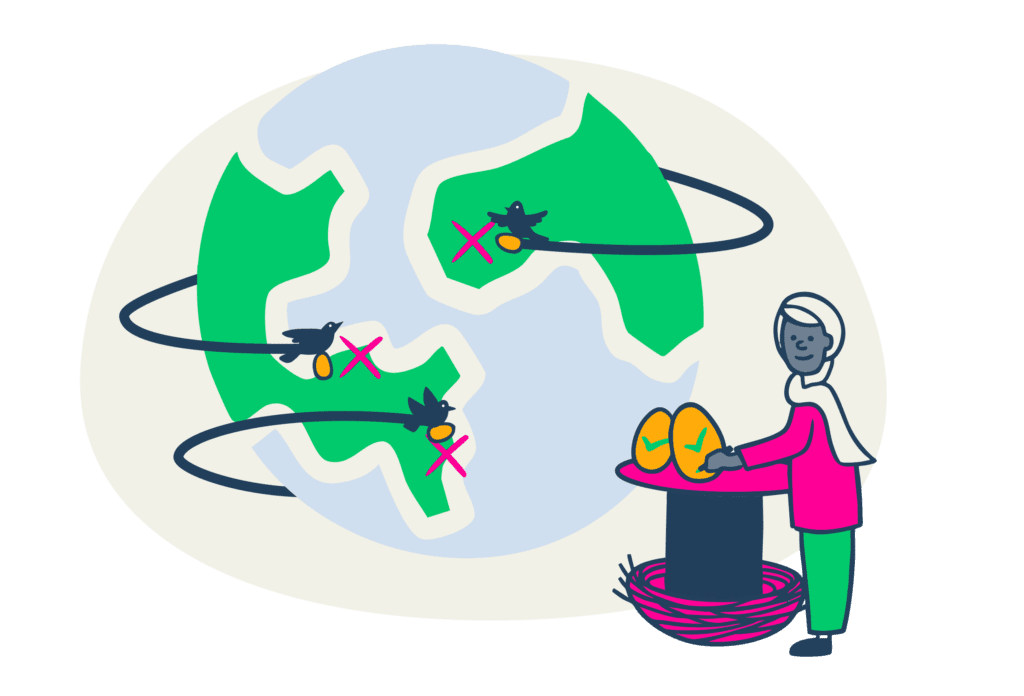The Impact of Grants for Community Groups
At the cutting edge of social change lie networks of grassroots community groups and mutual aid initiatives. They are often closest to their communities, understanding the nuances and lived experiences in a way that allows them to develop tailored, effective solutions.
During the COVID-19 pandemic, we saw a rapid rise in mutual aid groups popping up to provide for the most vulnerable. They were able to respond and adapt quickly in a way that larger charities and local authorities could not match.
Yet these grassroots groups tend to operate with extremely limited resources, relying heavily on the efforts of dedicated volunteers. Just imagine what they could achieve if they had proper funding and financial support.
That’s why grant funding for community groups is so vitally important. With relatively small injections of money, these groups can uplift and empower their communities in remarkable ways.
Keeping Communities Fed
The cost of living crisis has led to a staggering increase in demand for community groups providing food aid and warm spaces. As Oxford Mutual Aid shared, they are seeing “a lot of people who have not previously been in this situation” turning to them for support, including families and households with incomes.
Grant funding has allowed groups like Oxford Mutual Aid, Elswick Mutual Aid, and Angels Breakfast and Afterschool Club to scale up their efforts dramatically to meet this rising need. The mutual aid funds we distributed in collaboration with Changing Ideas and Disrupt Foundation enabled groups to purchase essential supplies, cover rental costs for warm bank spaces, and coordinate staffing.
Without this grant money, there is simply no way these volunteer-powered groups could have coped with the overwhelming demand from families in crisis.
Frontline Mental Health Support
Working on the frontlines of a crisis like this, supporting those in desperate situations day after day, takes a huge mental and emotional toll on the volunteer organisers. York Anti-Racist Collective shared that the pressures have forced them to scale back supportive programmes like mental health workshops when their community needs them most.
By providing funding specifically for collective care and wellbeing initiatives via our Leadership Wellbeing Fund, we ease the burden. Groups can afford counselling services, therapy sessions, team coaching, and other mental health resources to sustain their crucial efforts.
This preventative investment is a need that is too often overlooked but absolutely vital to enabling grassroots groups‘ continued impact over the long haul.
Catalysing Systems Change
While mutual aid is an essential stop-gap, we cannot let community groups get burned out just providing emergency relief. Their role in education, advocacy, and longer-term systems change is equally crucial.
That’s why grant funding must also resource things like workshops, campaigns, equipment, and capacity-building efforts that allow groups to advance their larger missions. Grants to Women on Bikes, for instance, supported procurement of tools, bicycles, and rental space to teach refugee women cycling skills that increase mobility and independence.
With more financial stability, these groups aren’t forced to divert all their energy to the pressures of the moment. They can stay focused on dismantling root causes and pioneering new, more sustainable models that make emergency relief ultimately unnecessary.
Want to Make Social Impact Quickly and Efficiently? Fund Grassroots Groups
The Power of Flexible Funding
One key factor enabling this high-impact use of grant money? The flexibility and trust extended to the groups.
Too often, funders place onerous restrictions and reporting requirements that drain groups’ limited capacity. Funds like our mutual aid grants purposely minimised administrative burdens and reporting obligations.
By trusting the leadership and vision of those actually embedded in the communities, the funding could flow to wherever it was most urgently needed at any given time – rent, supplies, staffing, programme costs, etc.
This flexibility to rapidly pivot based on evolving conditions, combined with the accountability fostered through our participatory grantmaking processes, allowed the money to catalyse maximum impact.
Looking Ahead
The successes highlighted here merely scratch the surface. From Trans Aid Cymru providing housing support to LGBTQ+ refugees in Wales, to BCI for RSI raising awareness of chronic pain advocacy – grants seeded remarkable work across the UK.
As the cost of living and environmental crises deepen, investing in grassroots community groups will only grow more essential. They represent our best hope for supporting resilience, reducing suffering, and sustainable living.
In this light, grants are not a nicety but an imperative. What seems like “high risk” is actually the highest leverage opportunity we have to empower those blazing a trail towards a more just, joyful, and generative world.
We simply must find creative ways to get more money flowing directly into the hands of these crucial community-led efforts. The risks of not doing so are far greater.
Interested in learning more?
Get in touch with a member of our team to hear more about how we can help you.

